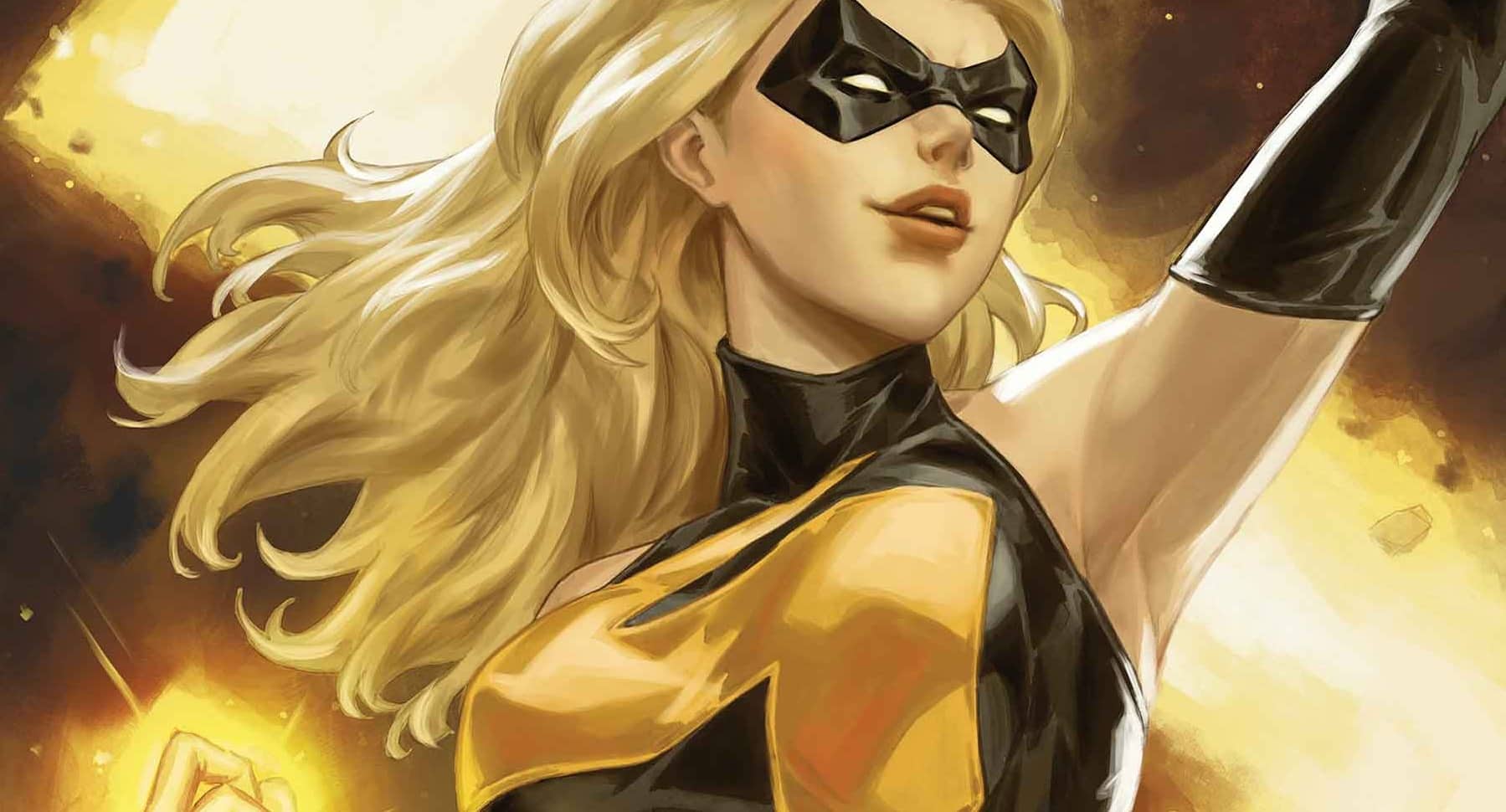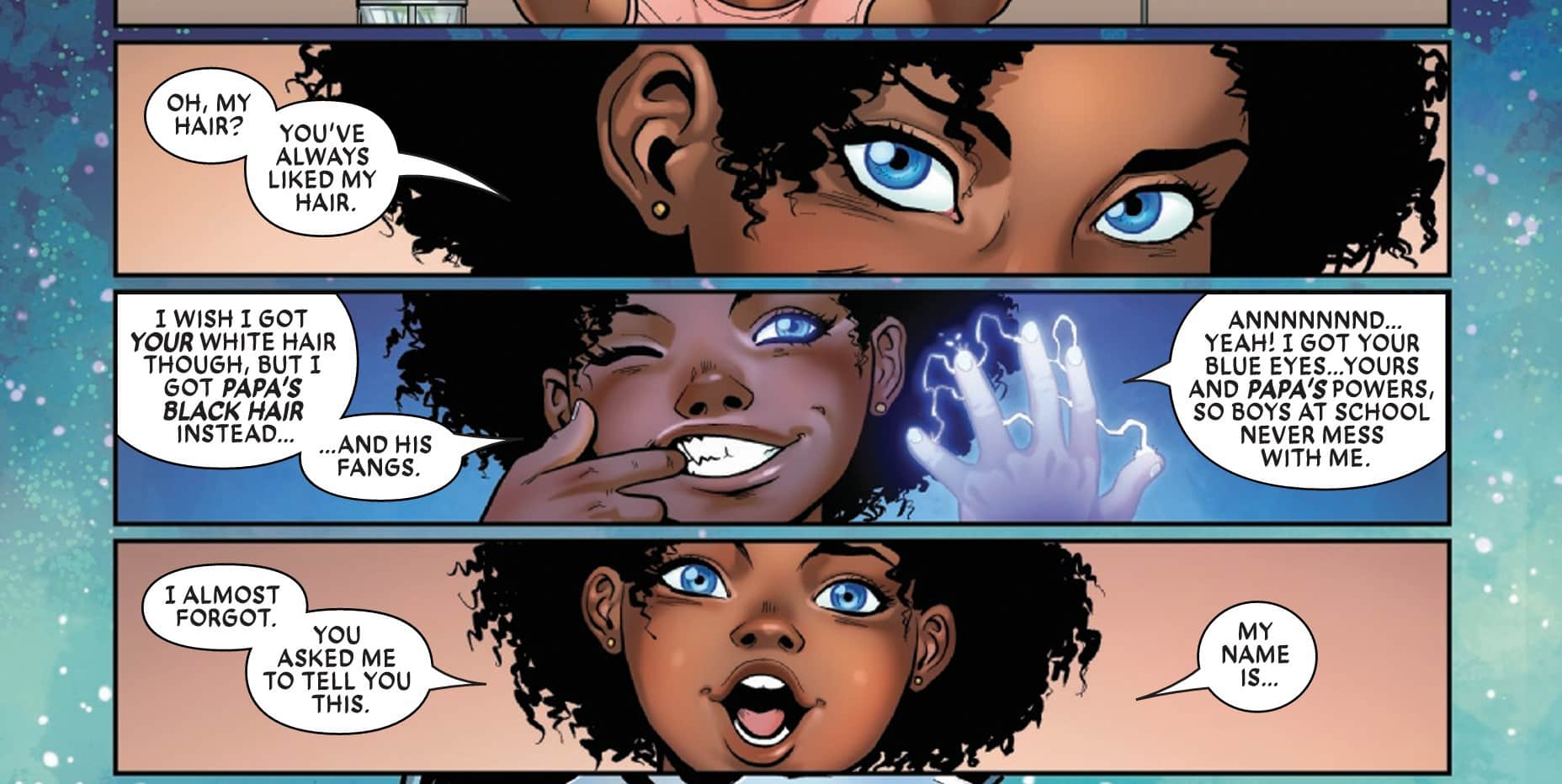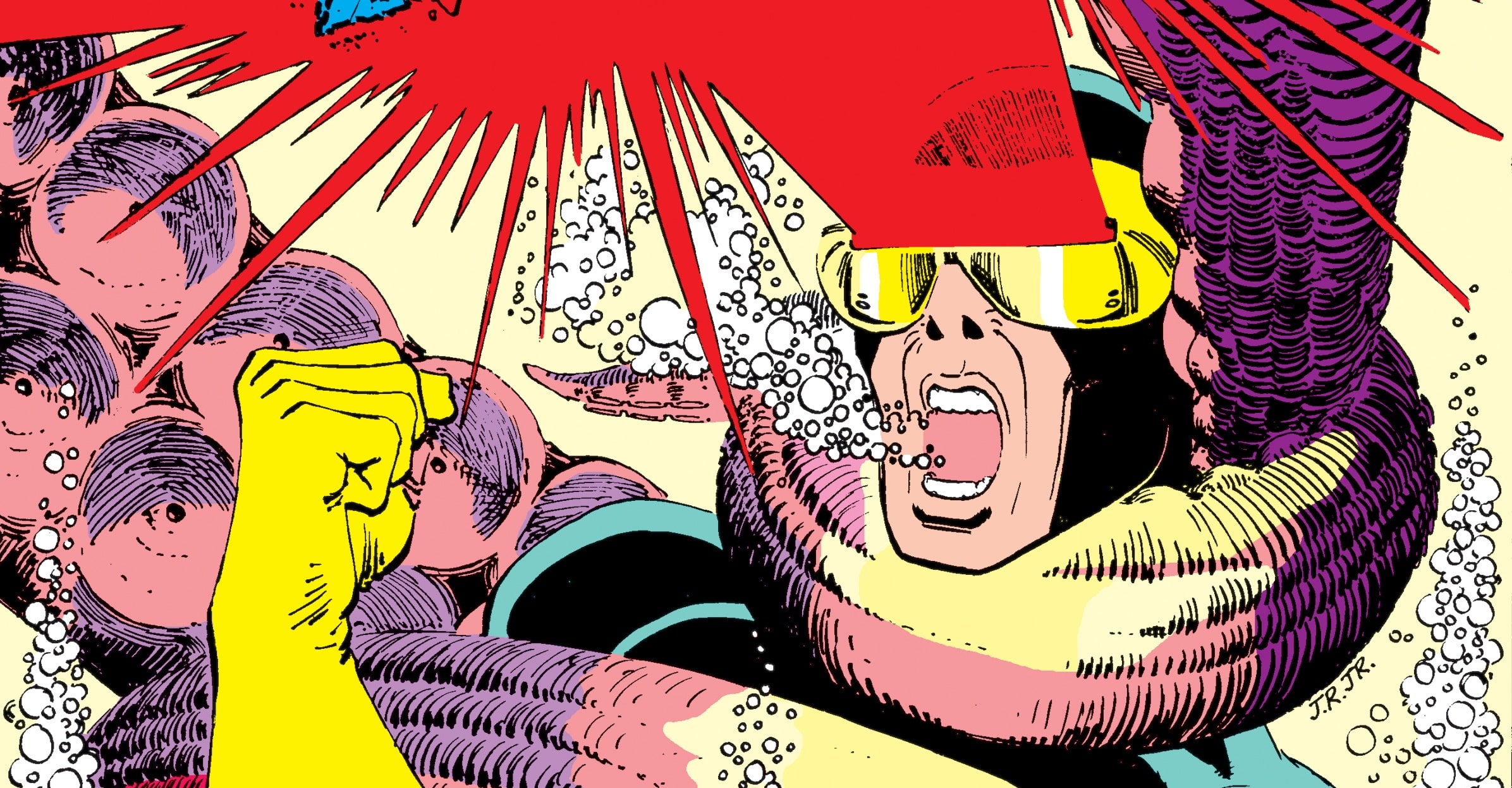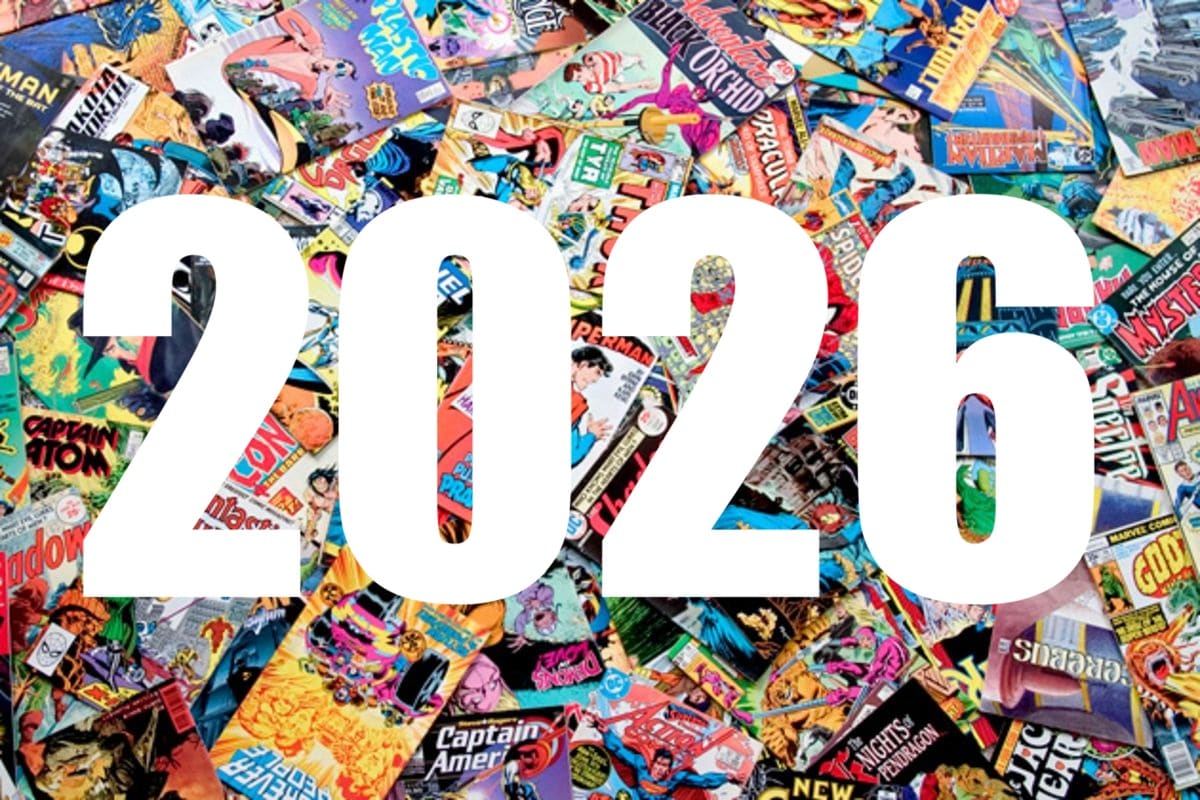Blackness is what I see when I examine my ancestors through a brown-eyed gaze in the mirror; what I hear when my creole accent leaves my tongue and passes through my full lips; what I feel when my body sways, rhythmically, involuntarily, naturally to jazz, or worship, or hip hop. Blackness is the context – cohesive, identifiable, textured – with which I interact with the world.
Blackness is as I am
There is, of course, no right way to be Black because there’s no right way to be me; only authenticity. Blackness has no specific set of instructions or restrictions because Blackness is inherently inclusive. So inclusive, in fact, that even if you don’t share my background, don’t share my proclivities and preferences, you can still see it. Identify it. Appreciate it. And just as it shapes me, it can shape you, too, for the better.
If you’ll let it.

From the pen of highly esteemed science fiction writer (and fellow Tulane alum) N.K. Jemisin, featuring amazing art and coloring from Jamal Campbell, Far Sector asks questions with an endlessly endearing candor and style. Our Green Lantern Sojourner Mullein (“Jo”) is assigned to solve a crime in a light-years away from the traditional action centers of the DC Universe (ie the “Far Sector”), a riff on both westerns and cop procedural shows. The physical distance from the familiar means the action isn’t beholden to constraints of cannon – a subtle reminder creation and exploration are possible without repeatedly ripping continuity apart.
Oh and about Jo: her ring isn’t like other Lanterns. Where others need a, uh, lantern to recharge their rings, hers is always charging. It’s less God-like in power, yes, but it also allows for a creativity in usage that makes her unique.
The story centers around a trimulverate of cultures who exist in a tenuous peace, a peace maintained at the expense of expressing emotions. But cracks in this millenia-long peace are emerging, and Jo is there to repair the damage. There are murders. There are drugs that allow people to express those repressed, illegal emotions. And there are bunches and bunches of memes. Yes actual, literal memes, which serve as an alternative currency, mined at a perilously high cost. (Sound familiar?)
A lot – and I mean a lot – takes place over the 10 issues of Far Sector, and jumping in with issue 10 will leave a new reader with more questions than answers. But for those who’ve started from the beginning, the latest issue brings an unexpected betrayal – and thus endgame – into focus, while also giving commentary on everything from slave labor practices to deadly use of force to the subversion of the governed by the government.
This comic is expansive without being overwhelming. Like all great art, gets better with repeated readings, but doesn’t necessitate repeated readings to understand. It is worth your time to read, masterful as both a comic and a narrative. But it’s more than just a comic and a narrative; it is a masterclass in character creation.

Women in comics are often drawn in exaggerated ways that accentuate the fetishes of cis men: disproportionately large breasts, no waist; long, slender legs; straight, flowing hair. Jo does not look like this. Her hair is in a natural updo (likely because she’s aware there won’t be any hair care products across the universe). Her hips and stature are noticeably stout and shapely. Athletic, yes, but not exaggerated. Sexy sure, but not sexualized.
She looks, as much as a drawn character can, like the women I know in the most authentic ways. I cannot overstate how important this is. Seeing yourself as a hero is a privilege white men have enjoyed since the first modern depictions of Jesus. To simply draw a character with Black skin and features is not enough, of course, but it is still (sadly) revolutionary. Yet the revolution does not stop with her appearance.
I acknowledge it’s haughty for me, as a cis man, to say a woman is presented “right”. But I can say she feels familiar. Like my mother or my sisters or my cousins or the women who attended my alma mater’s sister school. Those nuances – the intelligence paired with a frustration – are authentic and appreciated.
She’s aware. She has guilt. Desires. She’s Imperfect. Complex. Openly Queer. She doesn’t just have agency in her story: she exudes it and is poignantly aware when she feels it’s been taken away from her. The character drives the action, as opposed to some comics whose actions are subservient to whatever the needs of the plot are.
Jo is not merely a “Black” Green Lantern – a mash of racial and gender stereotypes shaded brown. She is a fully formed Black woman, who’s thoughts and actions are informed by her Blackness, trying the best she can with what she has. This detective story is imbued with context and complexities that make the work richer and more rewarding with every read, even to a cynic like me.
I’ve never been a fan of the Green Lanterns (affinities for John Stewart notwithstanding) because I’ve never been a fan of cops: My view of police and policing is complicated at best and cynical at worst. The concept of a group of powerful people, barely aware of my existence, deciding who and how I should be protected, and uninterested in any collateral carnage? It hits a little too close to home. I’m not sure if police make things better or worse. I’m not sure if those who command them do so for the betterment of people or simply to maintain their position. I’m not sure if justice is binary; sometimes I wonder if it’s even achievable.
Yet because these complicated feelings are acknowledged and accentuated, Far Sector feels not just relevant, but like a revelation. Jo operates with a sense of justice and righteousness, yes, but also shares my cynicism and regret. Her choices are all deliberate. Pained. The memories of her past haunt her; her memories of injustices against her people motivate her. Enrage her. Power her.
Her strength is not simply a generic, isolated will power, but the collected will power – the conscious choice to participate and survive in a society that shuns you – of generations upon generations of people. It’s beautiful, once you think about it.
And it is very, very Black.

So yes, the comic is masterful and Jo as a character is a revelation. Which is exactly why I’m anxious not just for her future, but the future of other Black women in the DC Universe.
In her first appearance in DC’s Future State, she lacks those hips. Her words and actions feel generic. On the poster commemorating DC’s next reboot, Infinite Frontier #0, she’s nowhere to be found (though Nubia, Wonder Woman’s sister and the subject of an excellent book for younger readers, is and a future Green Lantern book looks to maybe have a curly-haired compatriot.) Neither Vixen, or Bumblebee, or even a version of Batwoman is visible, marking a literal and figurative erasure of Black women. DC lags far behind its rival Marvel in producing content featuring Black women: Ironheart, Shuri, and the Dora Milaje have all had limited series in the past 3 years, and a solo Storm feature feels almost imminent. And even then, those series have all been limited. More than one Black woman deserves to exist at a time.
None of this is, of course, surprising. Look at the writers room. The producers. The infrastructure. Just as in society, prejudices are reaffirmed as “culture fits”. Opportunities are limited. Comics are a hostile space for Black People. Comics are a notoriously hostile place for women.
N.K. Jemisin is objectively one of the most successful, appreciated, recognized voices in all of modern science fiction. Yet other, less esteemed writers get a lion’s share of attention for their pet projects. Given the history of comics – given the history of our country – I cannot not imagine a white man with Jemisin’s resume, writing a story as well executed as hers, receiving as little institutional support.
Do I believe the editors at every major comic house are roving racists? No, and I argue that’s irrelevant: even the kind and well meaning can perpetuate systems of supression and discrimination. That’s what systemic racism is. That’s why the work of equity and equality is, well, work. That’s why Black history deserves more than a month. That’s why I’m writing this. That’s why I implore you to read.

Jo is in an unfamiliar place, trying to save a culture from itself. This is what Black women do. Eventually, a Jo Mullein will need to enter the foreign space of comics to save warring factions of writers from alienating a constituency that molds American culture. She will suffer. But she will succeed. This of course is unfortunate. But if there were no unfortunate circumstances, there would be no need for heroes.
I wish Black women didn’t always need to be the hero; to put on the proverbial cape or lasso or ring. It’s not fair. But while struggle shouldn’t necessarily be celebrated, it must still be acknowledged and appreciated. Appreciate Black women. Buy the comic. Support creators or color, specifically Black women, with your dollars and your words.
Blackness is a beautiful patchwork of half-forgotten memories and trauma; memories and trauma I understand some don’t want to be aligned with or defined by. Some don’t even want to acknowledge it. And I get it, sadly. I understand running for the comfort of other suns, hoping to be warmed in a way that doesn’t require acknowledgement of pain.

But I am not others. I am me, and I’m so happy to see a version of me and my world on page, a sun that warms and represents me. And even if you don’t look like me, you can still read and enjoy and learn and be enriched. Not out of owed labor to you, but as a means for you to do your own work and shape the world into a better place, free of gender norms and fetished appearances, with empowered women filled with agency and purpose.
My Blackness is me. It is Jo. And supporting that Blackness unapologetically helps you too.
If you’ll let it.
A proud New Orleanian living in the District of Columbia, Jude Jones is a professional thinker, amateur photographer, burgeoning runner and lover of Black culture, love and life. Magneto and Cyclops (and Killmonger) were right. Learn more about Jude at SaintJudeJones.com.






